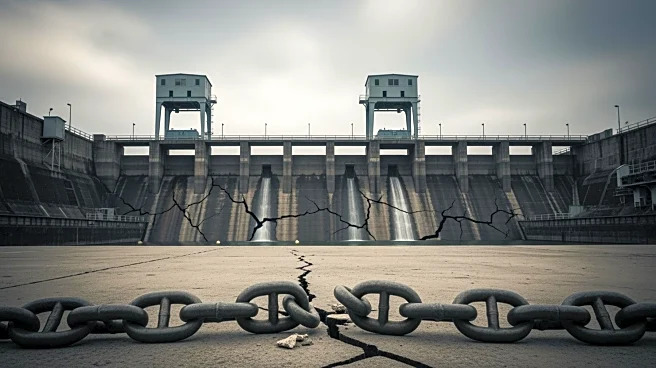What's Happening?
A London High Court has ruled that BHP Group, a major mining company, is liable for the 2015 collapse of the Fundão tailings dam in Brazil, which resulted in 19 deaths and significant environmental damage.
The disaster released 40 million cubic meters of mining waste, affecting communities and ecosystems along the Doce River. The ruling comes as part of the largest environmental class action lawsuit in the UK, involving over 600,000 claimants seeking up to $48 billion in damages. BHP plans to appeal the decision, citing previous settlements in Brazil and compensation already paid.
Why It's Important?
The ruling is significant as it sets a precedent for holding multinational corporations accountable for environmental disasters, regardless of where they occur. It highlights the ongoing legal and ethical challenges in balancing corporate operations with environmental protection. The decision could influence future litigation against companies involved in similar incidents, potentially leading to stricter regulations and increased corporate responsibility. For the affected communities, the ruling offers a chance for justice and compensation, although the appeal process may delay resolution.
What's Next?
BHP's announced appeal could extend the legal proceedings, potentially delaying compensation for the claimants. A trial to assess the damages BHP must pay is scheduled for October 2026. The case may influence international discussions on corporate accountability and environmental protection, especially as Brazil hosts COP30, the United Nations' annual climate summit. The outcome of the appeal and subsequent legal actions will be closely watched by environmental groups and affected communities.
Beyond the Headlines
The disaster's impact continues to affect the region, particularly the Indigenous Krenak people, who rely on the Doce River for cultural and subsistence purposes. The ruling coincides with global climate discussions, highlighting the tension between economic interests and environmental protection. The case underscores the need for improved safety regulations for mining operations in Brazil and beyond.










